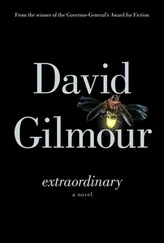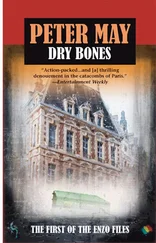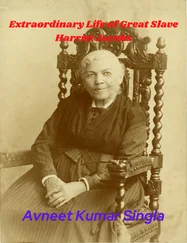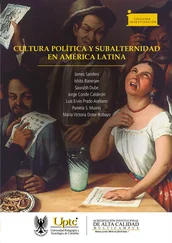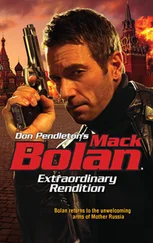The wind on the bridge was astounding in its ferocity. The Hungarian flags flapped like they wanted to come loose and get carried away. The city lights of Budapest formed a spectacle downriver, a grid on which the paths of innumerable occupying armies and their brutal histories could be roughly plotted. Brutus was finally ready to escape his complicity with the most recent imperial conquest, his complicity with the Man. That had been the problem all along. There was just no getting outside of his complicity or outside the very language the army used to keep him in his place. There was once a Brutus in Rome. Even resistance oiled the machine. That would sooner brook the devil than a king. Only refusal would make it stop.
Brutus stopped at the stone balcony hanging over the river halfway between Pest and Buda. Car lights lined the banks of the Danube in streaks of white and yellow. The bag he carried and the keys, the false ones, were the emblems of all that was evil in his life, of the doubt and resentment and anger. Magda’s betrayal — that was what bothered him the most. Cast them into the water, and he would be free at last. Only without them would he be whole again. He was laughing out loud when he pulled the locker keys from his pocket and held them straight out in front of him in a fist. The metal and molded plastic cut at his skin. He let go, dropping them into the river. No light flickered off them; the water made no sound as it swallowed them. They simply vanished.
His body stopped functioning. There was only pain now. Check the date, he thought — I’m all expired. He leaned forward and the frozen, metal railing burned through his clothes and against his belly. Watching the twinkling lights of the skyline, a slow smile spread over his face. The cold felt good somehow. Glorious.
He hoisted the bag onto the railing with the very last of his strength. As long as he held onto it there was nothing anyone could do to him. Brutus had the government by the balls. He knew enough to get Sullivan locked away for the rest of his hateful life, but that was not going to help him. It was clear now — no authority existed that Brutus was willing to run to. And with that understanding came his deliverance. Refusal was the only solution. He wouldn’t play along anymore. With both hands shaking, he held the bag out in front of him over the water. It was full of poison, full of black magic ready to seep out. He was ready finally to let go of all the pain he had collected, all the violence in his life, and to move on. He would keep moving. That was all anyone could do. Find an island and live off the land. Opening his hands, Brutus watched the bag plummet toward the river. It fell for a full minute, for four hundred years, for an eternity, before it broke the surface of the water. Then it was gone, all of it. He took a breath and tasted the blood rising to his lips. It tasted like the freedom that had been there all along, his whole life, unnoticed until that moment.
1.
Independence Day was three hours old and only Melanie and Nanette remained, the last customers of a bar with no last call. Even the prostitutes had gone home. “Bedtime, ladies,” Jimmy said, pulling the plug on the jukebox and killing “Strange Fruit.” He returned to wiping down the countertop.
Melanie still had more than half a vodka tonic left, which she swallowed in one long and breathless gulp. Nanette smashed out the end of another cigarette. They slid out of their booth and rose, unsteady, holding each other for balance. Jimmy leaned across the bar to kiss them goodnight. He smelled like a grease fire and had the gaunt look of someone nearing the end of a weeklong meth binge. “Sleep tight,” he said. “See you tomorrow, heh.”
“It is tomorrow,” Melanie said. Her words sounded perfectly formed in her mind, yet she could feel her tongue slurring them. She needed to go home, get some sleep. She should’ve been in bed hours ago. She had a big day tomorrow. Which was today.
She and Nanette were American expatriates drunk on youth, overpriced Dutch vodka, and some sour substance they mistook for personal freedom. Eve and Adam’s served as a second home, or perhaps third, a kind of base camp for their various recreations throughout the city. It was located on the ground floor of a bullet-hole-riddled apartment building next to the Danube, on the Pest side. Because the dimmed lights made it difficult to see from one end of the bar to the other (“Atmospheric!” one guidebook said, alongside a photo Nanette had taken) and offered a view of the Danube (“Scenic!”), Jimmy charged whatever he wanted for watered-down Guinness and packs of broken Chio Chips. He played up his campy luck-o’-the-Irish brogue when tourists arrived with stacks of newly changed forints. It was Monopoly money to them. As Budapest’s only authentic Irish pub, Eve and Adam’s ranked among the city’s most tourist-infested and expensive bars, but it was definitely convenient. They lived just half a block down Katona József Street, up a mountain of stone stairs.
The cold air penetrated what few clothes Mel had on even before the lock clicked behind them and the round Guinness sign blinked off. Her hair, a thick, Ride of the Valkyries— blonde curtain, covered her whole back and was long enough to wear like a scarf, but even that couldn’t keep her warm. The bar’s exit was built into the corner of the block and faced southwest toward the southern tip of the island and the brightly lit Margit Bridge. The Buda Hills sat dark and dormant across the river. Living so close to the pub, neither of them had bothered to wear a jacket, though Nan did have a camera bag slung over her shoulder. Break-ins were a regular fact of life in Hungary, and the petty crime in Budapest was outrageous; she kept her most expensive and irreplaceable equipment with her at all times, and even there it wasn’t always safe from the Gypsies on the metro. A few of her lenses, from Germany or maybe Scandinavia, were worth more than their respective cameras. Melanie should have been equally protective of her violin, which she bought in Austria from the same venerable firm that supplied instruments to the Vienna Philharmonic.
Instead of heading home, and to sleep, Nanette dragged Mel by the hand through the park at Jászai Mari Square and to the körút. There was no traffic at this time of night. They followed the tracks of the 4/6 tram, which during the day careened down the center of the four-lane road. At the middle of the bridge, a small observation deck hung over the water. Sometimes, when the weather was warmer, packs of drunken expats stood up there and revealed various parts of their anatomies or even peed on the tour boats passing below. A small pilot light of vodka in Melanie’s belly emanated a pale glow that she felt all the way up in her face. They shivered and hugged each other for warmth, and Nanette tried without luck to light a cigarette. She got angry and threw her lighter into the dark of the river. Melanie had grown more or less accustomed to Nanette’s outbursts. Their affection had recently grown somewhat less reciprocal than it once was.
A tanker passed lazily beneath them. The loud, mechanical drone precluded any chance of conversation. The ship was dark, though, making it appear like an apparition, an abandoned ghost schooner making its way slowly down to the Black Sea under its own steerage. The streetlights from the bridge fell onto the boat like candle wax. In an hour or so, the city would shut off all the lamps along the Danube, even at the parliament building and on the Chain Bridge. Mel attributed her fascination with the ship to the advanced state of her intoxication. She tried not to think about tomorrow’s concert. Today’s. When she focused too clearly on it, another warm wave of nausea tipped her off balance. She shivered again and held Nanette tighter. The vessel disappeared downriver, and in the absence of external noise she realized that most of the banging she heard had originated inside her own skull. This kind of intoxication, brought about by one vodka tonic after another, each intended to push her thoughts of the concert further away, carried with it a sickly, syrupy tinge. The queasiness was already starting to scratch its way up out of her stomach. She wouldn’t necessarily be ill, but there was something crude about vodka’s effects in comparison to, for example, the warmth of a nice burgundy or the gentle gravity of a Valium pilfered long ago from her mother’s medicine cabinet. She stared down at the water.
Читать дальше


